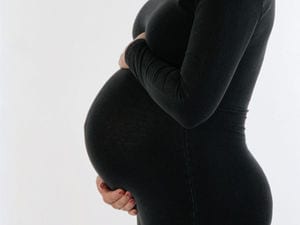
WEDNESDAY, July 18, 2018 (HealthDay News) — Few women consider the scary possibility that they might suffer a heart attack during or right after their pregnancy, but a new report shows it has become a more common reality in recent years.
Along with the fact that women are having children at an older age, rising rates of obesity and diabetes may explain the increasing rates of heart attack among pregnant women, according to researchers from the New York University School of Medicine.
They found that the risk of heart attack among pregnant women increased 25 percent between 2002 and 2014, with the rate rising from 7 to 9.5 for every 100,000 pregnancies in the United States.
“Our analysis, the largest review in a decade, serves as an important reminder of how stressful pregnancy can be on the female body and heart, causing a lot of physiological changes, and potentially unmasking risk factors that can lead to heart attack,” said senior investigator Dr. Sripal Bangalore. He is an interventional cardiologist and associate professor at NYU Langone Health.
Another heart expert said he would have thought the heart attack rates would have been even higher.
“Although this is an uncommon phenomenon, it is not totally surprising, given that pregnancy constitutes the ultimate cardiovascular stress test,” said Dr. James Lafferty, chairman of cardiology at Staten Island University Hospital in New York City. “It is a time of increased fluid retention, heightened clotting potential and elevated cardiac output. The fact that it is not more common is surprising.
“It would seem that women having children later in life who have underlying risk factors for early cardiac disease may be the reason for this increase,” Lafferty added. “It may be prudent to address cardiac risk factors earlier in this group of patients who are generally viewed as a low-risk group.”
The analysis of 49.8 million births in hospitals nationwide during the study period found that 1,061 heart attacks occurred during labor and delivery, 922 occurred before birth, and 2,390 occurred in the two months after giving birth.
In addition, the death rate from heart attack among pregnant women remained relatively high (4.5 percent), despite advances in treatment for heart attack during the study period.
The risk of a heart attack during pregnancy rose with age. Pregnant women aged 35 to 39 were five times more likely to suffer a heart attack than women in their 20s. And women in their early 40s had a 10 times higher risk than women in their 20s, the findings showed.
The study was published online July 18 in the journal Mayo Clinic Proceedings.
The researchers said another possible reason for the increase is that it’s easier to detect heart attacks now than a decade ago.
Study first author Dr. Nathaniel Smilowitz said the “findings highlight the importance to women considering pregnancy to know their risk factors for heart disease beforehand.” Smilowitz is an interventional cardiologist and assistant professor at NYU Langone.
“These patients should work out a plan with their physicians to monitor and control risk factors during pregnancy so that they can minimize their risk,” he said in a university news release.
One heart expert, who was not involved with the research, said the study raised good questions — some of them unresolved.
“This was a very interesting study since it sheds light on an underappreciated topic of acute [heart attack] during pregnancy,” said Dr. Michael Goyfman, director of clinical cardiology at Northwell Health’s Long Island Jewish Forest Hills, in New York City.
“The study has several limitations, however,” he added.
They include increased detection of heart trouble in recent years and not accounting for other risk factors such as congenital heart disease or other genetic diseases that can trigger heart trouble, Goyfman said.
More information
The U.S. Office on Women’s Health offers tips for a healthy and safe pregnancy.
